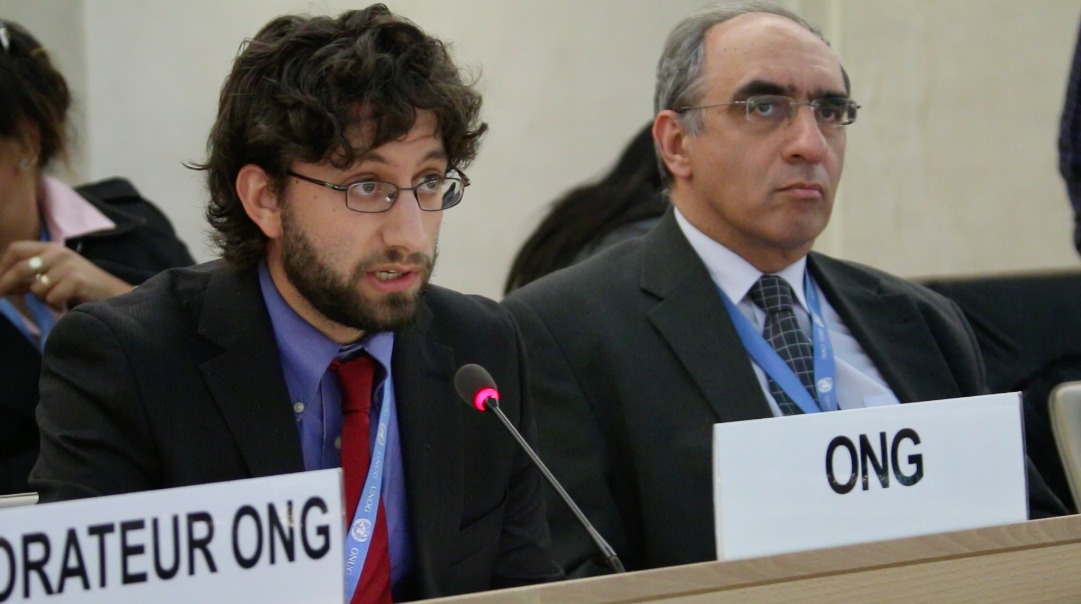On Friday 29 June, at the 38th session of the United Nations Human Rights Council, ADHRB’s Advocacy Associate delivered an oral intervention during the Item 6 General Debate, calling attention to Saudi Arabia’s upcoming 3rd cycle Universal Periodic Review, and noting that this is an optimal environment for states to engage and address systematic, widespread, and deteriorating human rights situation in the country. Click here to read a PDF of the Associate’s statement, or continue reading for his remarks.
Mr. President,
In advance of Saudi Arabia’s upcoming 3rd cycle UPR in November, ADHRB calls the Council’s attention to Saudi Arabia’s continued violation of recommendations from its previous two UPR cycles and the deteriorating situation in the kingdom.
Since September 2017, Saudi Arabia has undertaken three waves of mass arrests, detaining scores of dissidents. In September, officials arrested dozens of clerics including Salman al-Awda, businessmen including Essam al-Zamel, intellectuals, and rights defenders including Abdulaziz al-Shubaily and Issa al-Hamid. In November 2017, officials arrested hundreds of princes and business in a so-called corruption sweep that only served to shore up Crown Prince Mohammed bin Salman’s power. In May 2018, officials arrested nearly a dozen women’s rights defenders, including Loujain al-Hathloul and Mohammed al-Bajadi of the Saudi Civil and Political Rights Association.
Saudi Arabia has also increasingly targeted political dissidents and members of the Shia minority for capital punishment. In January 2016, authorities executed Sheikh Nimr al-Nimr, a social justice activist on false terror charges. Now there are at least 33 people – mostly Shia – on death row for such charges, including Ali al-Nimr, Dawood al-Marhoon, and Abdullah al-Zaher.
As the rights situation deteriorates in Saudi Arabia, we call upon all States to critically engage in Saudi Arabia’s upcoming UPR in November 2018 and offer substantive recommendations in support of wide ranging reforms designed to promote and protect fundamental human rights.
Thank you.





